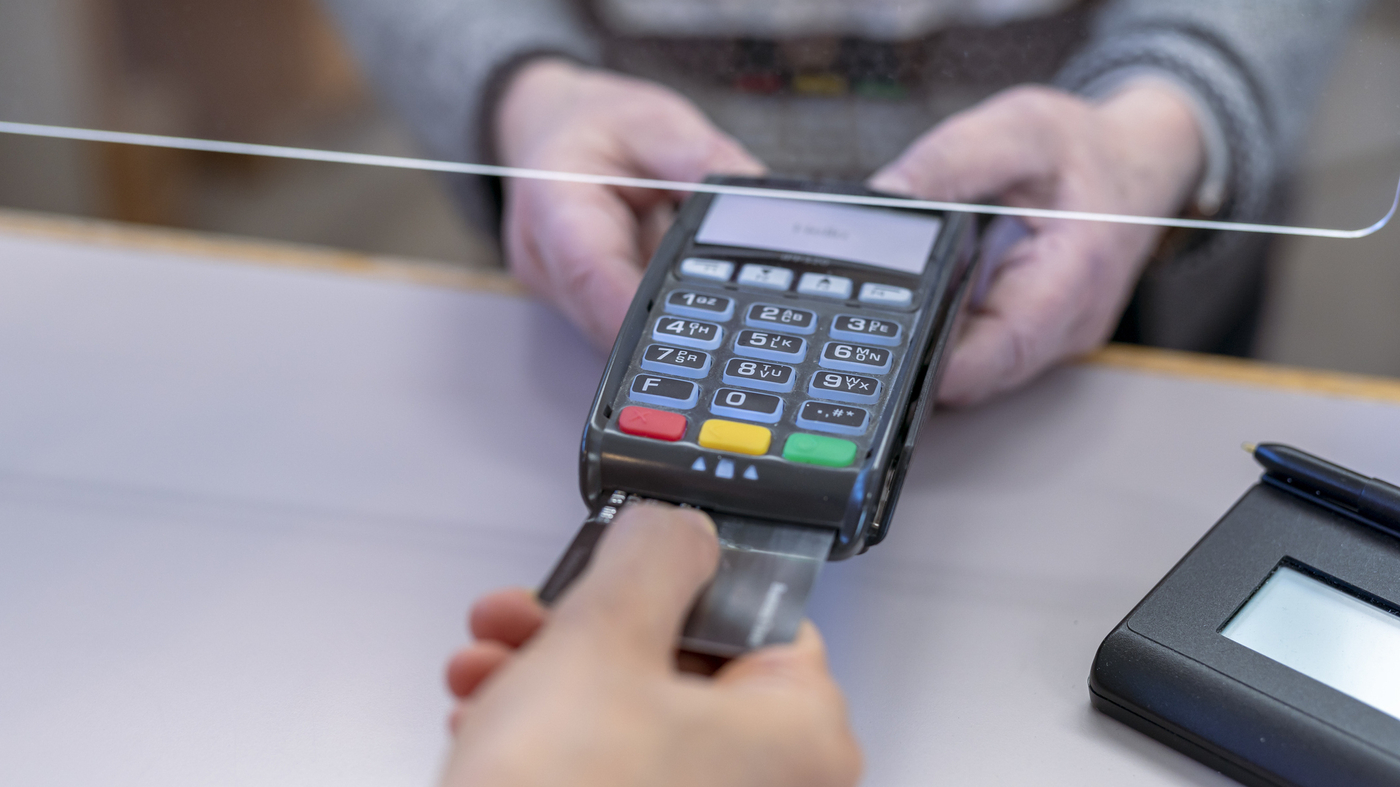
Docs’ workplaces typically provide particular medical bank cards as an answer to paying off giant medical payments. However sufferers might find yourself paying way more for his or her payments after they should pay curiosity down the street.
Fly View Productions/Getty Pictures
conceal caption
toggle caption
Fly View Productions/Getty Pictures

Docs’ workplaces typically provide particular medical bank cards as an answer to paying off giant medical payments. However sufferers might find yourself paying way more for his or her payments after they should pay curiosity down the street.
Fly View Productions/Getty Pictures
The Biden administration on Thursday cautioned People in regards to the rising dangers of medical bank cards and different loans for medical payments, warning in a brand new report that prime rates of interest can deepen sufferers’ money owed and threaten their monetary safety.
In its new report, the Shopper Monetary Safety Bureau estimated that individuals within the U.S. paid $1 billion in deferred curiosity on medical bank cards and different medical financing in simply three years, from 2018 to 2020.
The curiosity funds can inflate medical payments by nearly 25%, the company discovered by analyzing monetary knowledge that lenders submitted to regulators.
“Lending outfits are designing expensive mortgage merchandise to hawk to sufferers trying to make ends meet on their medical payments,” mentioned Rohit Chopra, director of CFPB, the federal client watchdog. “These new types of medical debt can create monetary damage for people who get sick.”
Nationwide, about 100 million individuals — together with 41% of adults — have some form of well being care debt, KFF Well being Information present in an investigation carried out with NPR to discover the dimensions and impression of the nation’s medical debt disaster.
The huge scope of the issue is feeding a multibillion-dollar affected person financing enterprise, with non-public fairness and large banks trying to money in when sufferers and their households cannot pay for care, KFF Well being Information and NPR discovered. Within the affected person financing trade, revenue margins high 29%, in keeping with analysis agency IBISWorld, or seven occasions what is taken into account a stable hospital revenue margin.
Tens of millions of sufferers join bank cards, equivalent to CareCredit provided by Synchrony Financial institution. These playing cards are sometimes marketed within the ready rooms of physicians’ and dentists’ workplaces to assist individuals with their payments.
The playing cards usually provide a promotional interval throughout which sufferers pay no curiosity, but when sufferers miss a cost or cannot repay the mortgage through the promotional interval, they’ll face rates of interest that attain as excessive as 27%, in keeping with the CFPB.
Sufferers are additionally more and more being routed by hospitals and different suppliers into loans administered by financing corporations equivalent to AccessOne. These loans, which frequently exchange no-interest installment plans that hospitals as soon as generally provided, can add lots of or hundreds of {dollars} in curiosity to the money owed sufferers owe.
A KFF Well being Information evaluation of public data from UNC Well being, North Carolina’s public college medical system, discovered that after AccessOne started administering cost plans for the system’s sufferers, the share paying curiosity on their payments jumped from 9% to 46%.
Hospital and finance trade officers insist they take care to teach sufferers in regards to the dangers of taking out loans with rates of interest.
However federal regulators have discovered that many sufferers stay confused in regards to the phrases of the loans. In 2013, the CFPB ordered CareCredit to create a $34.1 million reimbursement fund for customers the company mentioned had been victims of “misleading bank card enrollment ways.”
The brand new CFPB report doesn’t advocate new sanctions towards lenders. Regulators cautioned, nevertheless, that the system nonetheless traps many sufferers in damaging financing preparations. “Sufferers seem to not totally perceive the phrases of the merchandise and generally find yourself with credit score they’re unable to afford,” the company mentioned.
The dangers are notably excessive for lower-income debtors and people with poor credit score.
Regulators discovered, for instance, that a few quarter of individuals with a low credit score rating who signed up for a deferred-interest medical mortgage had been unable to pay it off earlier than rates of interest jumped. In contrast, simply 10% of debtors with wonderful credit score did not keep away from the excessive rates of interest.
The CFPB warned that the expansion of affected person financing merchandise poses yet one more danger to low-income sufferers, saying they need to be provided monetary help with giant medical payments however as an alternative are being routed into bank cards or loans that pile curiosity on high of medical payments they cannot afford.
“Shopper complaints to the CFPB recommend that, slightly than benefiting customers, as claimed by the businesses providing these merchandise, these merchandise in truth might trigger confusion and hardship,” the report concluded. “Many individuals can be higher off with out these merchandise.”
KFF Well being Information, previously generally known as Kaiser Well being Information (KHN), is a nationwide newsroom that produces in-depth journalism about well being points and is among the core working applications at KFF — the unbiased supply for well being coverage analysis, polling, and journalism.



